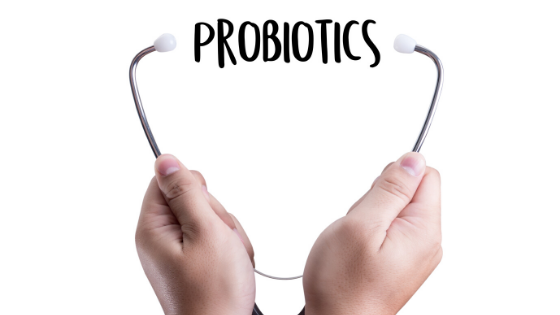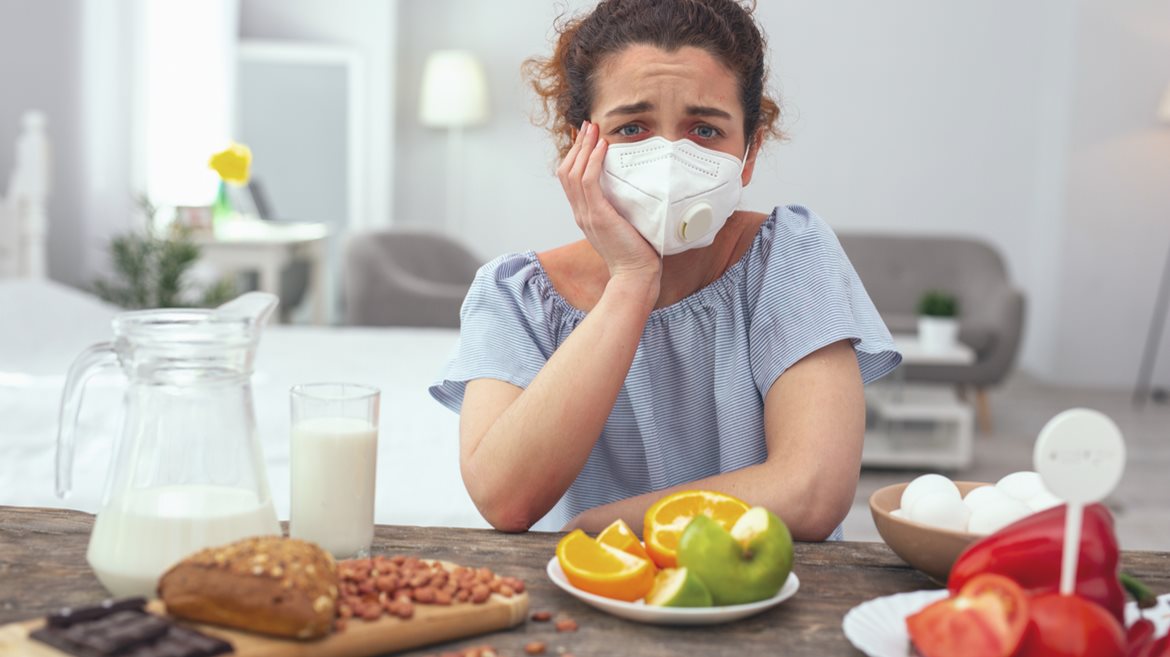We are not alone! We live in harmony with hundreds of millions of other organisms and a plethora of different good bacteria that are detrimental to gut health. These bacteria are located mainly in our gut, or gastrointestinal tracts. They have a symbiotic relationship with us. We provide them with a warm, nutrient-rich environment and they aid our digestion and fight off harmful microorganisms. This balance is a delicate one.
Listen to Your Gut
A number of factors disturb the gut’s microbiome like poor food choices and disease. As a consequence, we suffer from digestive symptoms, inflammation, autoimmune issues, and poor health. One of the best ways in which to promote gut health is to regularly take probiotics. Probiotics introduce helpful bacteria to the gastrointestinal tract.
These compact, encapsulated bacterial colonies are not a one-size-fits-all solution. Here, we provide guidance on specific probiotics to address each patient’s specific needs.

Benefits of Probiotics
Probiotics Attack Harmful Organisms
The purpose of probiotics is to attack harmful organisms in the body. Bacteria using nutrients, water, and other resources is the recipe for a healthy gut ecosystem. This leaves little room for harmful microorganisms. Probiotics encourage the growth of good bacteria, crowding out the bad ones. Certain probiotics have even shown antimicrobial activity in laboratory settings that mimic the human stomach. In 2017, researchers published results showing that lactic acid bacteria in probiotics discouraged the growth of intestinal pathogens and prevent intestinal infections. 1
Probiotics Regulate Digestion
It has long been known that healthy gut flora is a necessity to retain regulate our bodies and offer good digestion. This is why broad-spectrum antibiotic use causes diarrhea. Antibiotics kill infection and the normal and helpful bacteria in your gut. This leads to poor water absorption and diarrhea. Probiotics are often advertised as helpful for regularity, and this is no exaggeration. Interactions between gut bacteria and carbohydrates keep constipation at bay and help ensure that food flows smoothly through the digestive system. Proper nutrient absorption needs good bacteria.
Probiotics Help Maintain a Healthy Weight
People who have diverse and healthy gut bacteria tend to be leaner. A 2013 study published in Nature confirmed this premise.2
Good gut bacteria helps with a number of metabolic issues, including insulin resistance and lipid status. Functional Medicine physicians find that obese patients lose significant weight.
Probiotics Control Food Allergies
The environment and poor diet affect the normal gut microflora negatively. This can contribute to the development of food allergies and food sensitivities. The reverse is true, as well. Robust and healthy gut bacteria tend to resist the onset of food allergies. A study published in 2017 strengthened this assertion, finding in mice that, “The present study supports the theory that probiotics can treat food allergy by modulating specific genera of the gut microbiota.”3
Probiotics Positively Affect Many Diseases
Research remains in the early stages. Promising evidence exists that probiotic therapy, in conjunction with a healthy diet, may help a wide range of diseases. These include such ubiquitous problems as high blood pressure4, fatty liver disease5, cardiovascular disease6, and even some mental disorders.7
Functional Medicine has always proclaimed body systems are interrelated, with the gastrointestinal system being of particular importance. At Linden & Arc Vitality Institute, we are uniquely equipped to provide advice, diagnosis, and treatment plans. To book a consultation, contact us at [email protected]
References:
1 https://www.ncbi.nlm.nih.gov/pubmed/28286570
2 https://www.ncbi.nlm.nih.gov/pubmed/23985870
3 https://www.ncbi.nlm.nih.gov/pubmed/28337267
4 https://www.ncbi.nlm.nih.gov/pubmed/28315049
5 https://www.ncbi.nlm.nih.gov/pubmed/28298269
6 https://www.ncbi.nlm.nih.gov/pubmed/28293920
7 https://www.ncbi.nlm.nih.gov/pubmed/28291971
About the author:
Dr. Murfin is wholeheartedly focused on her life’s mission to help people heal and achieve extraordinary outcomes. She believes that health is more than merely the absence of disease. It is a total state of physical, mental, emotional, spiritual, and social wellbeing through the creation of a whole and meaningful life. Dr. Murfin leaves no stone unturned to determine the root cause of illness or imbalance.






